Very Opinionated is a publication written by me and my partner
. We are passionate about producing podcasts, videos, and this Substack. We write about culture, society, ideology, politics, philosophy, liberty, and more.If you enjoy reading, watching, and listening to our work, please like this post, share it, and subscribe. You can also help our content reach new ears and eyes by doing the same on Youtube & Spotify.
For anyone seeking residency outside of the collectivist anglo-sphere, you can use our affiliate link for the ultimate relocation guide to Mexican residency.
If Bitcoin is your thing, you can drop us some SATS here.
Thank you!
When I was a little girl, my parents had an extra room filled up with miscellaneous items. An old turntable, a massive jukebox inherited from someone in the family, random nicknacks, and two big leather suitcases that my great-grandmother Helena used to pack the contents of her life into, and then cross the ocean into a new world.
Helena, my Baba Sokol, fled the U.S.S.R. to Canada, just over a decade after the Russian Revolution in 1917. She took the RMS Ausonia ocean liner in Southampton, in May of 1930. I never knew it growing up, but when I was an adult I discovered that her life in the old world was wrought with tragedy, suffering, and death.
She came overseas with nothing left to lose.
Later in life, some of the mysteries of her old life, which had been previously undisclosed to me, began to be spoken about. My family’s descriptions were cryptic and confusing. She was Russian, or actually, no!, Belarusian. She came from Belarus, or Poland— was she Polish? No, it was that she was Belarusian, but the borders were “constantly changing at the time”— and so she left Poland for Canada, but she was a “white Russian”. Did this mean she was an anti-communist, or a white Russian in the Belarusian sense?
Maybe both.
To further complicate matters, she was married three times. Records on passports and papers were often misspelt, adding to the confusion. What was her actual maiden name? She came on her sister’s passport, was one version of events. She lied about her age, allegedly, so nobody knew if she was 96 or 98 or 100 when she died. Was she born Jewish or Russian Orthodox?
The family lore surrounding the jovial old woman I knew as Baba Sokol (the married name of her third husband) was as thick as her Russian accent. The mysteries and secrets of her life were contained in the bootleg vodka she made in her basement on rue Louis-Hémond in Montreal, and some revealed in the conversations she had with my uncle while the potatoes were fermenting.
The passport pictures of Baba Sokol that my mother unearthed in her daughter-in-law’s house, my late Ukrainian grandmother Anna, showed Helena dressed in bourgeois attire with a solemn expression. Helena was Anna’s mother-in-law.
Anna’s parents also boarded a boat from Southampton between 1928 and 1930. They were Ukrainians who were likewise crossing the ocean for a better life in Canada. The details of the departure of Anna’s mother and father, my great-grandparents who died before I was born, is a story lost. One that I am trying to piece together now but will likely never fully know.
My grandmother Anna, my beloved baba, who died in late 2021 of turbo-cancer, held the secrets and stories of our family, and kept them close to her heart. When my mother was going through Anna’s things after she died, she found a stack of documents that contained these clues. We went through it together in a visit last month. In this treasure trove, I found a tiny, one-square-inch newspaper clipping of her mother Paraska’s obituary.
“Baba was like a Matroesjka,” I told my mother, “and every layer you opened up contained more secrets.”
“Baba was like a Matroesjka,” I told my mother, “and every layer you opened up contained more secrets.” I was referring to those little Russian dolls, the ones that stack into each other.
“This little piece of paper,” I said, “contains the key to Baba’s heart. This might be the tiniest doll.”
When Anna’s mother Paraska died, my mother said that she was never the same. She died suddenly at a young age, and with her, the stories of her life, before, during and after immigrating to Canada. My baba Anna never spoke about her mother to me. She wasn’t one to talk about the past; only about the present, and the future. The past, for her, was private.
She and I were very close, in life, and in death. Her last moments of earthly consciousness were shared with me and my own little family. The last person she saw with her steely, death-stricken eyes was her great-grandson, our son. I will never forget our last moments together; her last moments in the material realm.
Back now to Baba Sokol, my Belarusian great-grandmother. She had a husband and a young son in the U.S.S.R. who died, the story goes, during one of the typhus outbreaks that plagued Eastern Europe in the 1920s. She packed her material belongings into the two leather suitcases that still sit in my parent’s basement, and took the Ausonia to Canada, meeting her second husband onboard. Her second husband and her gave birth to one son, my grandfather Walter, who married Anna. Walter and Anna had two children, a daughter and a son. Their daughter is my mother.
I was always fascinated by these complex and incomplete stories, and the empty old suitcases. How did Baba Sokol fit all of her life into two suitcases? How did she leave everything behind, cross the ocean, and start anew in a strange land?
What did the suitcases that Anna’s parents used look like? Where were they? Why did Paraska and her husband leave Ukraine, exactly? What happened to them?
The strange land both sets of my maternal great-grandparents immigrated to provided them with new opportunities to create a good life. That is what they did. Leaving the nascent Soviet Union for the land of opportunity, Canada, allowed them to exercise freedom unimaginable in the Communist hellhole from which they fled.
Ninety years later, the country they escaped to is undergoing its own Marxist Revolution, and is rapidly turning into a Communist hellhole. So it goes.
The revolution here has been a silent, creeping, ideological revolution which has so far accomplished many of the same things as the Soviets: ideological conformity, the redistribution of wealth, the disintegration of the family unit, economic malaise, the disappearance of the middle class, a state-sponsored propaganda apparatus, a culture of death, the burning of churches, indoctrination of the youth, social engineering, corruption at the highest levels, the silencing and incarceration of political dissidents, the seizure of private property, the loss of individual freedoms, and the reorientation of society from one focused on individual rights under the law to a collectivist system that is intolerant of dissent.
And it is far from over.
There is a convergence of illiberal forces, from the Malthusian activists surrounding ‘climate change’, to the LGQBT+ radicals, to the ‘anti-racist’ propagandists, to the Islamists occupying our streets with the Neo-Marxists (as they did in the Iranian revolution of the 1970s). The social injustice warriors of Canada march in lockstep with an anti-Western federal government hellbent on dismantling whatever remains of free enterprise, free-market capitalism, the traditions of Western culture, individualism and liberty.
“There are those who still think they are holding the pass against a revolution that may be coming up the road. But they are gazing in the wrong direction. The revolution is behind them. It went by in the Night of Depression, singing songs to freedom.”
- Garet Garrett, The Revolution Was
In the above graduation speech, Deputy Prime Minister Chrystia Freeland eerily asked,
“What is this inflection point? What is this upheaval which is going to the very roots of humanity itself? There are many ways to describe this transformational moment. But I think they all come down to one fundamental question: does capitalist democracy still work?”
I would have to write a whole other essay to go into details about Freeland’s sordid personal and family history, but one would do well to read this Tablet article for more context. In it, Freeland is quoted as saying,
“My maternal grandparents fled western Ukraine after Hitler and Stalin signed their non-aggression pact in 1939. They never dared to go back, but they stayed in close touch with their brothers and sisters and their families, who remained behind.”
Freeland’s beloved grandfather was a Nazi propagandist and collaborator. Freeland uses her revisionist family story to assert her supposed anti-communist and anti-fascist, “pro-democracy” stance. Her actions, like the hearty applause for Ukrainian Nazis, or the freezing of law-abiding Canadian citizen’s bank accounts for protesting against her government’s authoritarian policies, say otherwise. Her words, as in the above speech, also say otherwise— Freeland is a proponent and perpetrator of the “transformational moment” she describes. She is a prominent leader of the Neo-Marxist revolution.
There are many inter-generationally traumatized descendants of those whose lives were transformed by the collectivist movements of the 20th century who, wittingly or unwittingly, wish to replicate them in one form or another. And they sit at the top echelons of our states, NGOs, supranational organizations, and corporations.
Many people stayed in the Soviet Union, until the very end. Many people did not pack their lives into two leather suitcases.
My ancestors decided to leave.
After the visit with my parents, when I went through the stack of old documents, papers, passports and pictures, I told my husband, “Living in Canada, everything is grey. The expression on my great-grandmothers faces is the same as the one I sometimes see reflected at me in the mirror.”
“We need to leave.”
I know they lived through much worse than I have. And how much worse could it have become, had they decided to stay? How much worse could it become for me and my family, if we decided to stay?
The future is not predetermined, and maybe there is still hope that this collectivist madness will not reach its darkest potential. But as Friedrich A. von Hayek wrote in the Road to Serfdom, “One need not be a prophet to be aware of impending dangers. An accidental combination of experience and interest will often reveal events to one man under aspects which few yet see.”
Part of me wants to stay. Part of me is attached to my stuff— not just the material stuff, but the emotions attached to the stuff. My beloved baba, with the newspaper clipping of her mother’s obituary, held onto so much stuff that she lived in an ocean of stuff. She was attached to memories, secrets that she rarely divulged, but sometimes she would open up one matroejska to let you see inside.
Perhaps the children of those who packed up their lives into suitcases to start anew hold onto the things their parents could not keep. Every inanimate object holds a memory, a time, a place, a piece of a story that we hold onto, lest we forget it. Perhaps when we leave our things, we leave a part of that story behind, and that is the tragedy and the beauty of our newfound freedom.
After a long scouting trip to the country we are moving to, my little son is going through all of his rediscovered stuff back here at home. “Where does this come from, Mom?” He is just shy of three, but all of his stuff already has a story, a memory attached to it.
As I write these words, I am watching him playing with his little trucks. He already understands, we will have to leave some things behind and replace them with new ones.
“What will I do with my race-car bed?” he asked me the other day.
I paused, thinking of an answer.
In the space, he answered his own question: “Oh, I know! We will ask the construction workers to make a new one for me.”
I have been worried about how the loss of the material items we have collected over the years will affect him. This has been a projection. I, like my grandmother, despite my own denial, have become attached to my stuff, and the memories animating all my stuff.
It may seem trivial, but when you really think about it, it is our attachment to our stuff that keeps us trapped in a place we wish to leave. Because in that stuff, we hold memories. Part of leaving our stuff behind is leaving an old world behind, an old life behind.
This is no trivial task.
I now have to figure out how to pack our lives into two suitcases. Like my ancestors, I will have to leave a part of my old life behind. I will need to find a way to hold onto the memories intangibly, and simultaneously, move forward.
Perhaps the best way to do it, is to write. To record. Not just to have a stack of paper clippings and photographs, but to write the story. To write it down, so it doesn’t get lost.
This testimony is a part of it, now.
For anyone seeking residency outside of the collectivist anglo-sphere, you can use our affiliate link for the ultimate relocation guide to Mexican residency.




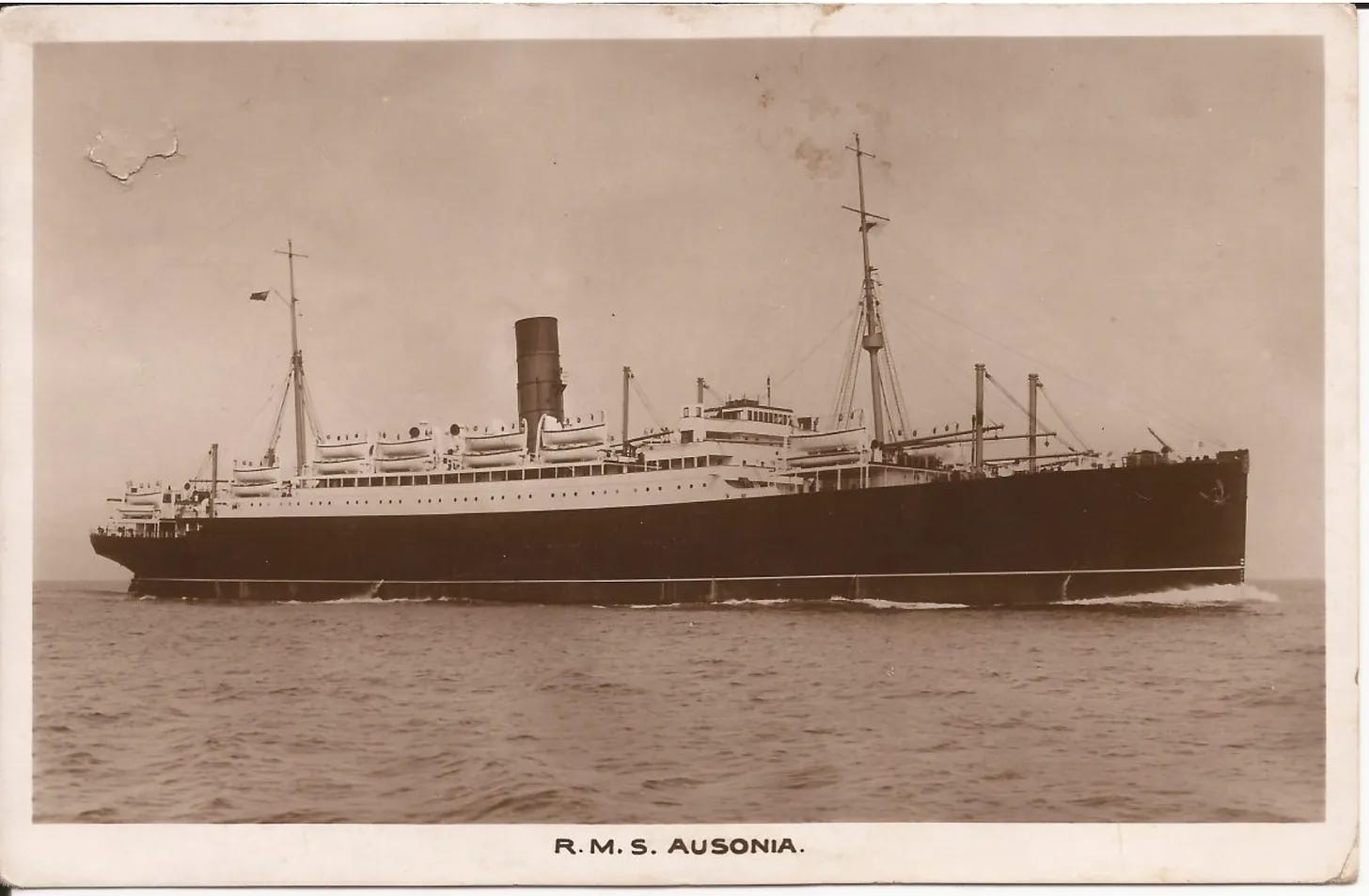



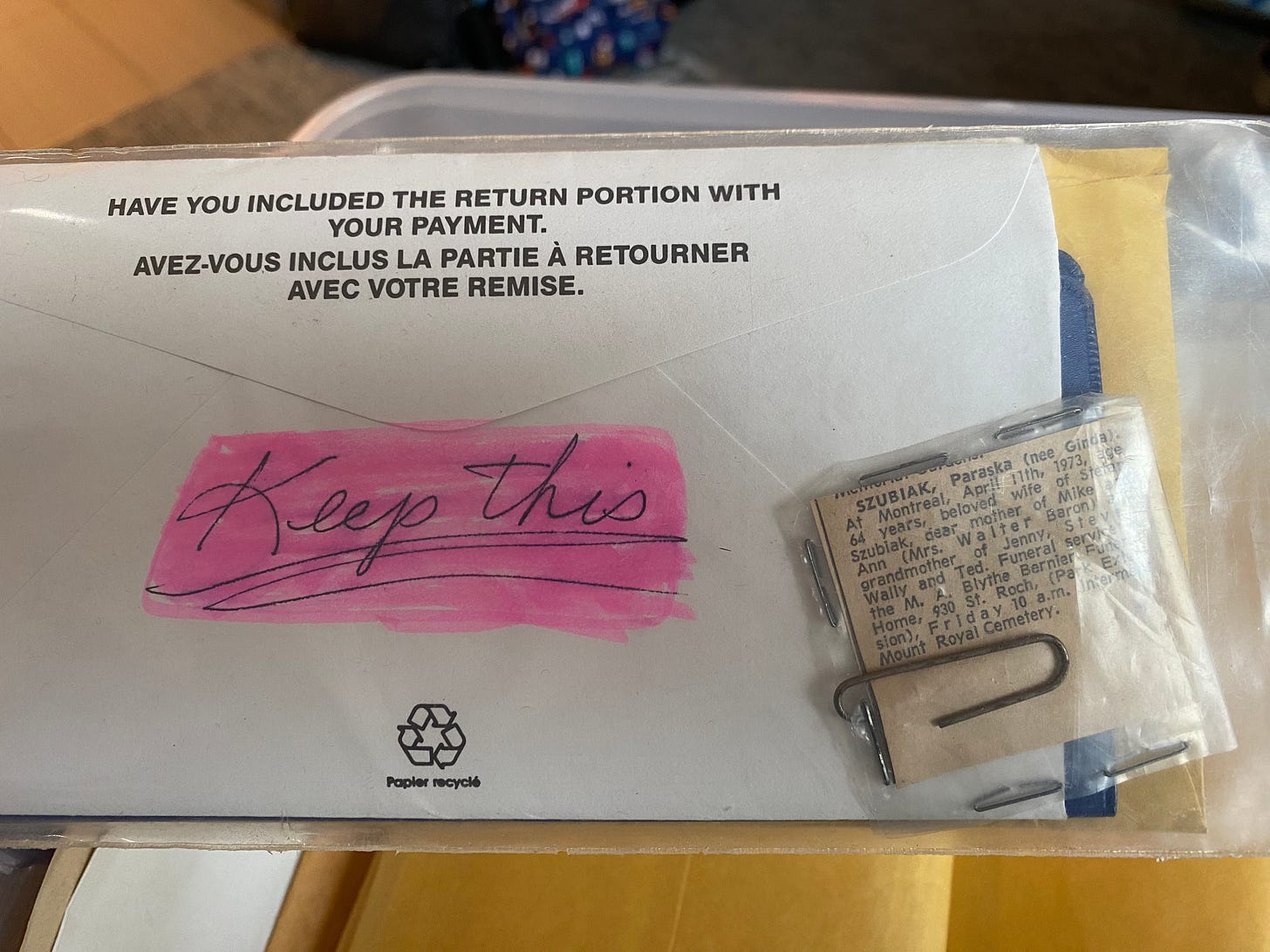
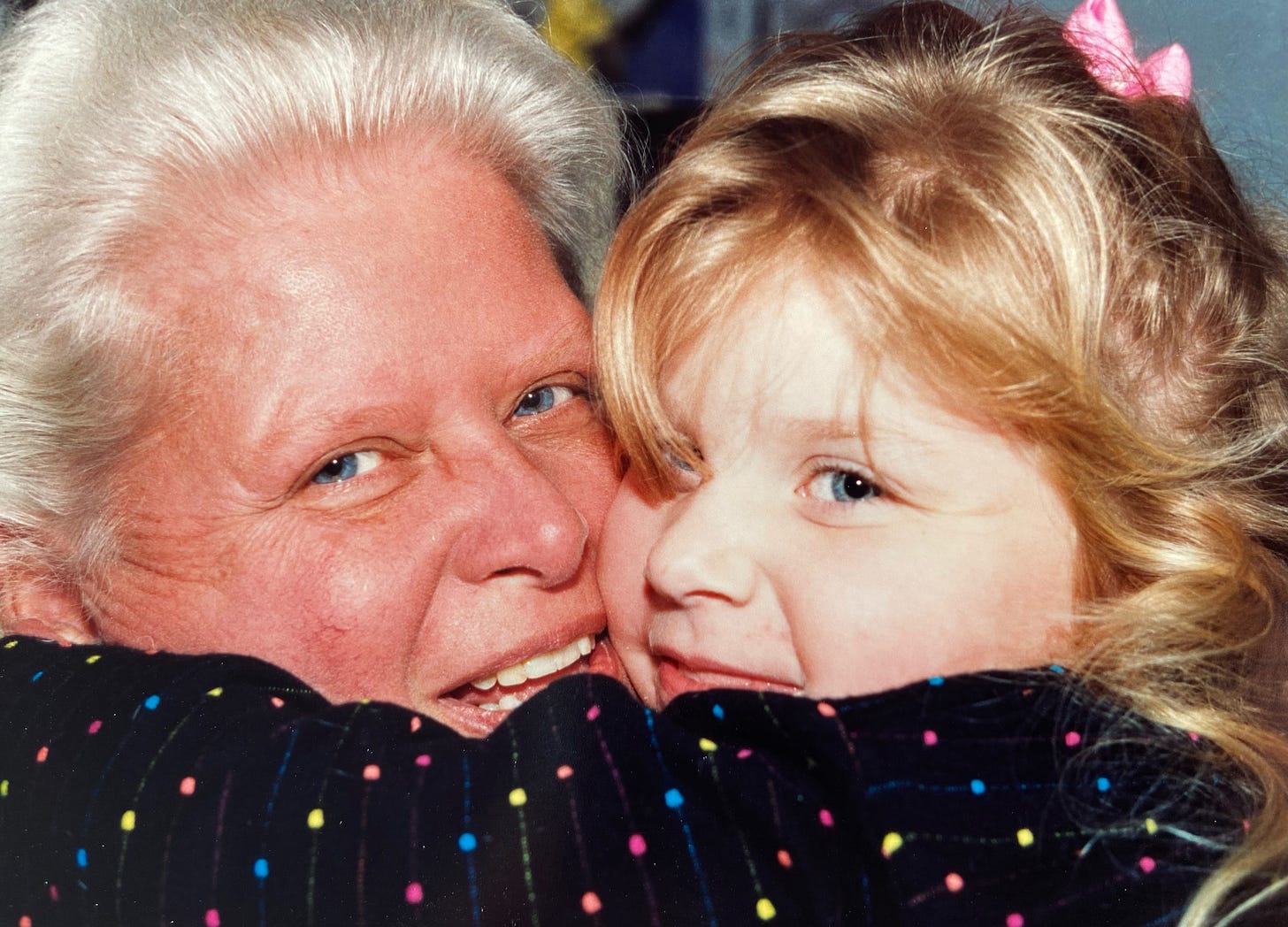
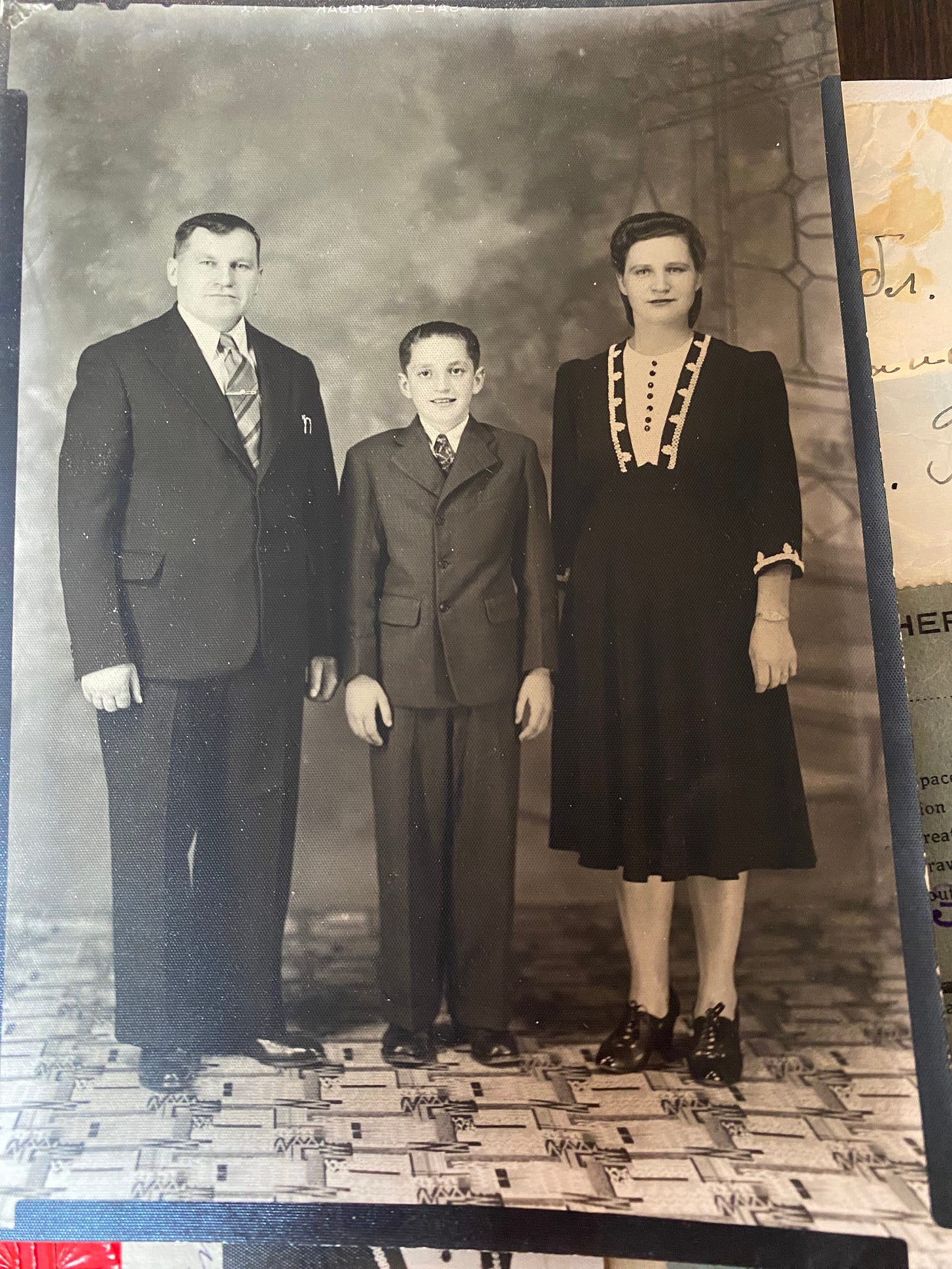


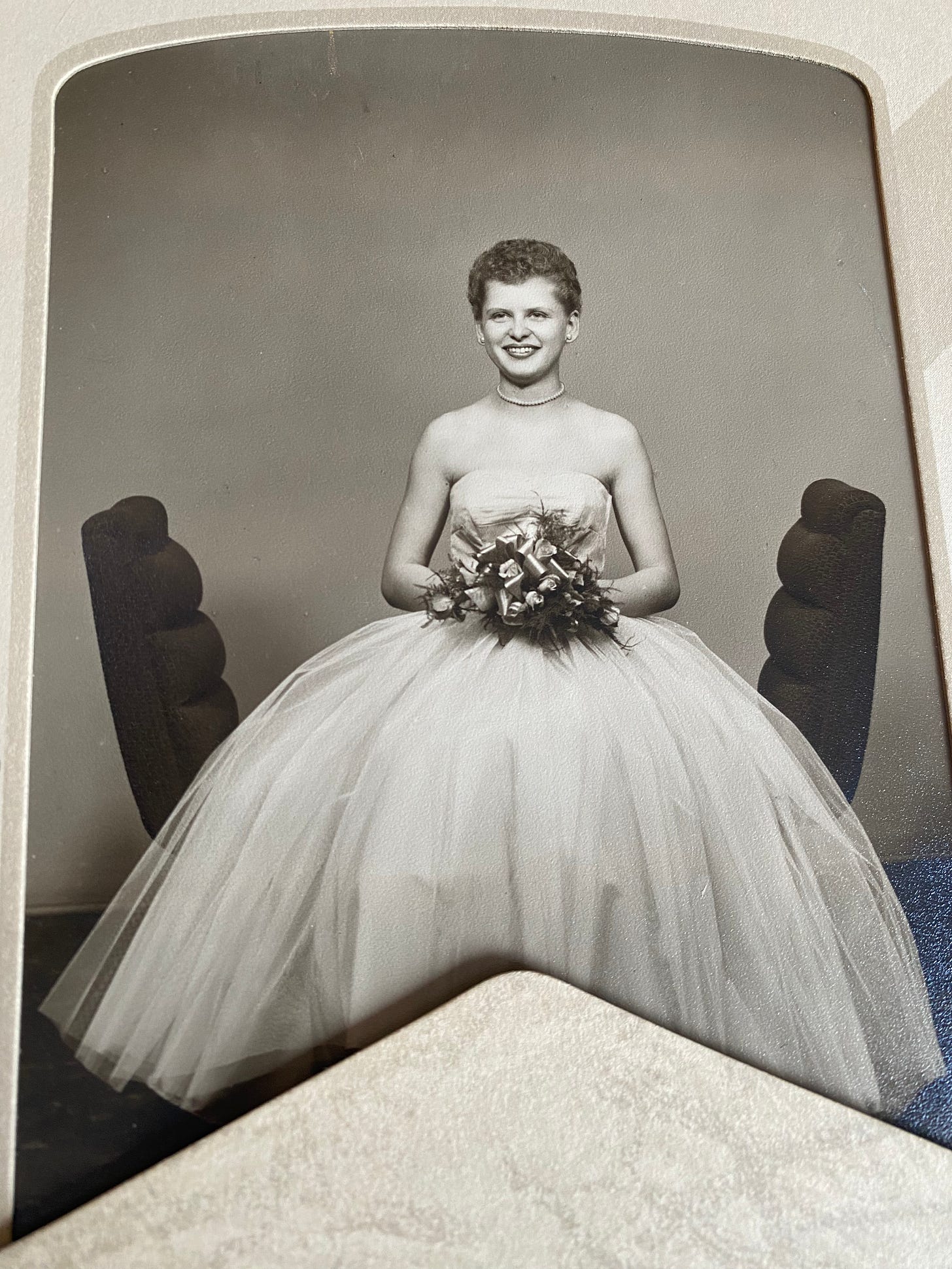

I am deeply financially committed to Canada. Victoria, actually. Very hard for me to leave. I have three sons, two are married. Four grandkids. But I am planning on how to make a quick getaway if need be. No one is vaxed. We will homeschool or private school, if we can find a non woke one. If that is possible. Two of my sons would leave easily. But my youngest with whom I own our main businesses doesn’t see a way yet. But he won’t allow his kids to be vaxed. If it comes to that, we all go. Trudeau is a monster. He is far more than just stupid. Freeland, who probably runs things is an actual Nazi. It amazes me people can’t see it.
I resonate with your story. My Bubba came to Canada from Russia as well, from a part of the country that is now the Ukraine. She spoke both Russian and Ukrainian, and also Polish because of the year she, her mother and siblings spent there waiting to join her father in Canada. They fled the pogroms against the Jews as her father was a prominent cantor which made them easy targets. I don't even pretend to be as strong and resilient as my ancestors, but what I do share with them is the ability to see the writing on the wall. As the scamdemic unfolded and "two weeks to flatten the curve" became months and years, I felt like a Jew in 1930s Germany who knew what was coming and started preparing.
My husband and I became permanent residents of Mexico last April and we're living here for the winter now. Please come to San Miguel de Allende and we'll show you around! There are some other Canadians here who are awake. But I digress... We are fortunate to be retired and living on a 60-acre property north of Toronto where we were able to live fairly freely during the scamdemic. Of course we were not permitted to travel, but at least I could host gatherings during lockdowns and nobody was the wiser. We're not ready to leave Canada permanently due to family and financial complications, but we own a home in Mexico now and have a right to be here permanently if the need arises. We'll probably spend close to half the year here going forward.
Mexico has been a breath of fresh air, though I have to say that too many locals are still wearing masks. Your son will be happy and healthy here! My kids (in their 20s) came to visit and the younger, who is semi-awake, said people seem happier here. She mentioned the children in particular and that was after being here for one day. Yes, we are not naive to the fact the globalist agenda is meant to be implemented everywhere, but at our age (60 and almost 60) we'll be happy if we can stave it off by living somewhere more sane and that will be way more difficult to convert. Cash is still king here and, with the number of Mexicans who are unbanked, all hell would break loose with any attempt to abolish cash (and, interestingly, the word for cash in Spanish is effectivo). There is music in the square most nights, with multi-generational families enjoying themselves together. The parades are to celebrate their culture, not the hatefests taking over the streets of Western cities. No statues are being taken down and no churches are being torched. When Canadians ask me if I feel safe in Mexico I laugh out loud. In Canada I'm one of those "yahoos" who wouldn't wear a mask and didn't get jabbed, plus I'm Jewish. Let's just say I feel much safer here than I would on a university campus.
So good on you for taking the leap and making a better life for yourselves and your precious son! If you go with the flow (there are some frustrations!), learn Spanish (easier for you than for us at our age, but we're committed), and commit to integrating you can have a wonderful life here. Mexicans are warm and loving people and they really do appreciate when new residents try speaking Spanish and respect them and their culture. I look forward to reading about your new life and I thank you for all you do -- I have given up on many in the health freedom movement I used to follow but you are one of the few exceptions who see the whole picture clearly.